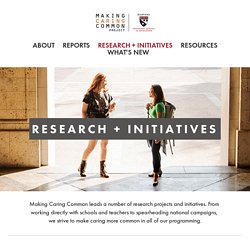

Cell Phones in Class. 10 Sep The Cell Phone Solution There was a discussion this summer on the AP Literature Facebook group about student attention in class, cell phone distraction, and the difficulty teachers were facing in getting their students to read for sustained periods of time.

I’ll admit, it is a problem that has troubled me as well. My students have become sneakier and more blatant with their cell phones. They were sneakier because they would slip their phones into their hoodies or pants pocket and slip it out just enough to do a split-second check while I was teaching. They were also more blatant because some were leaving their phones on their desk face up. I didn’t want to spend my time policing phones; I wanted to teach. But because I was not tackling this problem allowed my students to prioritize their cell phones over the work at hand.
The most important book that I read over the summer was Cal Newport’s Deep Work: Rules for Focused Success in a Distracted World . His thesis is simple. Related. This Millennial Might Be the New Einstein. One of the things the brilliant minds at MIT do — besides ponder the nature of the universe and build sci-fi gizmos, of course — is notarize aircraft airworthiness for the federal government.

So when Sabrina Pasterski walked into the campus offices one cold January morning seeking the OK for a single-engine plane she had built, it might have been business as usual. Except that the shaggy-haired, wide-eyed plane builder before them was just 14 and had already flown solo. “I couldn’t believe it,” recalls Peggy Udden, an executive secretary at MIT, “not only because she was so young, but a girl.” OK, it’s 2016, and gifted females are not exactly rare at MIT; nearly half the undergrads are women. But something about Pasterski led Udden not just to help get her plane approved, but to get the attention of the university’s top professors. Among the many skills she lists on her no-frills website: “spotting elegance within the chaos.”
How to sing your way to language success. What can songs teach us about a language?

Richard Stokes, Professor of Lieder at the UK’s Royal Academy of Music , talked to Ellie Buchdahl of Education UK about teaching the wonder of language through music. How does a man who describes his own singing voice as ‘risible’ and who once taught GCSE and A-level students to ‘read lyrics, learn music and make an absolute racket’ churn out so many high-performing musicians and linguists? Musician or teacher – which are you? I am certainly not a musician. My ‘qualification’ is that, aged 14, I heard the baritone Dietrich Fischer-Dieskau on the radio singing Schubert’s Die Schoene Mullerin .
Association for Library Service to Children (ALSC) Skip to main content Children's Notable Lists Each year the Association for Library Service to Children (ALSC) identifies the best of the best in children's books, recordings, and digital media.

Use the links below or on the menu at the left to access current and past children's notable lists, and learn about the submission process. Current Notable Lists. Great Websites for Kids has been retired. Capacity building for social change in complex environments (1) (Re)-introduction to the blog Over the next few months I will be blogging about some of the findings from my PhD research, which I recently completed (full dissertation can be downloaded from here: This initial post is meant to frame my overall research so that the subsequent posts will make more sense.

My research attempted to contribute to an area that is virtually absent in capacity-building literature: capacity-building methodology that is relevant and meaningful in supporting organizations working for social change in complex environments (also see: Essentially, I was looking for ways to develop methods and broader organizational strengthening approaches that took into account the complexity of real life social change situations that organizations in international development face. Some of my motivations for the research My dissertation explores ways in which “capacity-building” might contribute to processes of social change in complex environments.
Core assumptions and methodology. Research + Initiatives — Making Caring Common. Caring Families Research Project Parents are inundated with strategies that seek to promote positive behaviors in children.

Yet remarkably little is known about basic, crucial questions related to the implementation and impact of these strategies. Making Caring Common is in the early stages of piloting and assessing a variety of engaging activities, practices, and routines designed to promote empathy, gratitude, and diligence in children ages three- to 13-years-old in the United States. We will be looking at differences in strategy selection, implementation, and impact by gender, race, ethnicity, class, and child-raising priorities of the parents and primary caregivers across who participate. During the 2018-2019 academic year, our team is focused on bringing together experts in the field, expanding our network of aligned organizations, developing and adapting strategies, and testing distribution approaches. Read More Character Assessment in College Admissions Caring Schools Network Safety.
Build Cheat Sheets and Share Your Favourites! - Cheatography.com: Cheat Sheets For Every Occasion. Worksheets. Essayer. Bookish. Erudite. Linguist. Music Minds. Thought Patterns. Libraries. Outils créa.